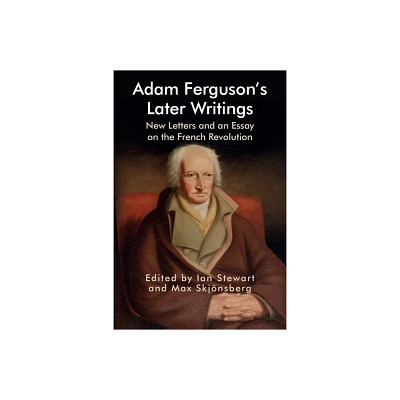Home
Political Vanity: Adam Ferguson on the Moral Tensions of Early Capitalism
Loading Inventory...
Barnes and Noble
Political Vanity: Adam Ferguson on the Moral Tensions of Early Capitalism
Current price: $35.00


Barnes and Noble
Political Vanity: Adam Ferguson on the Moral Tensions of Early Capitalism
Current price: $35.00
Loading Inventory...
Size: Paperback
*Product Information may vary - to confirm product availability, pricing, and additional information please contact Barnes and Noble
Political Vanity
aims to illuminate the central debates over the historical, moral, and political legitimacy of market capitalism by engaging central theorists of the Scottish Enlightenment, in particular the philosopher and sociologist Adam Ferguson. Ferguson was a contemporary of philosophers and economists David Hume and Adam Smith, and actively questioned many of the pillars of early capitalism on theological grounds. Namely: conjectural histories used to justify economic liberalization reduction of human action to production and consumption the inevitable tendency of capitalist power to undermine political institutionsFerguson argued that far from equalizing and liberating, the unfettered market left to its own devices takes the form of despot, enslaving civil society in bonds of its own making. His ideas continue to have theological, philosophical, and ethical relevance today.
aims to illuminate the central debates over the historical, moral, and political legitimacy of market capitalism by engaging central theorists of the Scottish Enlightenment, in particular the philosopher and sociologist Adam Ferguson. Ferguson was a contemporary of philosophers and economists David Hume and Adam Smith, and actively questioned many of the pillars of early capitalism on theological grounds. Namely: conjectural histories used to justify economic liberalization reduction of human action to production and consumption the inevitable tendency of capitalist power to undermine political institutionsFerguson argued that far from equalizing and liberating, the unfettered market left to its own devices takes the form of despot, enslaving civil society in bonds of its own making. His ideas continue to have theological, philosophical, and ethical relevance today.


















